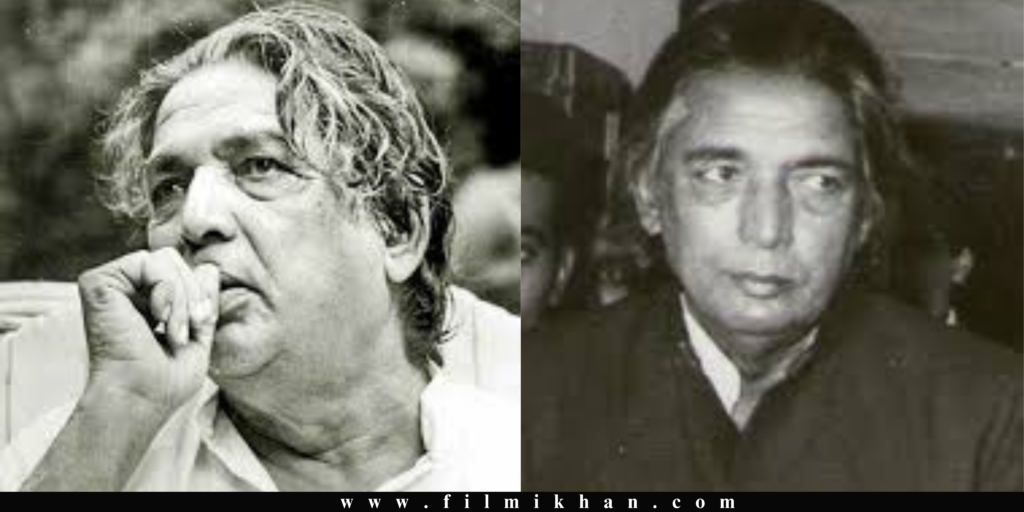
Kaifi Azmi, an iconic figure in the world of Urdu poetry, left an indelible mark on Indian literature with his profound verses and poignant expressions. Born on January 14, 1919, in Azamgarh, Uttar Pradesh. Kaifi Azmi’s full name was Athar Husain Rizvi. His journey from humble beginnings to literary greatness is a testament to his unmatched talent and unwavering dedication to his craft.
Kaifi Azmi’s poetic journey began at a young age, influenced by the rich cultural heritage of his surroundings. His innate gift for storytelling and his deep empathy for the human condition found expression in his poetry, which resonated with audiences across generations.
Throughout his illustrious career, Kaifi Azmi penned numerous ghazals, nazms, and poems that reflected the social and political realities of his time. His poetry was characterized by its evocative imagery, soul-stirring themes, and unwavering commitment to social justice.
Kaifi Azmi’s literary contributions extended beyond the realm of poetry. He was also a prolific lyricist in the Indian film industry, collaborating with renowned composers to create timeless songs that continue to enchant audiences to this day. His lyrics were imbued with depth and meaning, elevating the cinematic experience and touching the hearts of millions.
Azmi wrote his first lyrics for the film Buzdil (1951), directed by Shaheed Latif and music by SD Burman. His early work as a writer was mainly for Nanubhai Vakil’s films like Yahudi Ki Beti (1956), Parvin (1957), Miss Punjab Mail (1958) and Eid Ka Chand (1964). His best work as a writer was Chetan Anand’s Heer Raanjha (1970) wherein the entire dialogue of the film was in verse.
He also won great critical accolades for the script, dialogues and lyrics of M.S. Sathyu’s Garam Hawa (1973), based on a story by Ismat Chughtai. Kaifi Azmi wrote the dialogues for Shyam Benegal’s Manthan (1976) and Sathyu’s Kanneshwara Rama (1977).

As a lyricist and songwriter, though he wrote for numerous films, he will always be remembered for Guru Dutt’s Kaagaz Ke Phool (1959) and Chetan Anand’s Haqeeqat (1964), a war film. Some of his notable films Kohra (1964), Anupama (1966), Uski Kahani (1966), Saat Hindustani (1969), Shola Aur Shabnam, Parwana (1971), Bawarchi (1972), Pakeezah (1972), Hanste Zakhm (1973), Arth (1982) and Razia Sultan (1983).
He also acted in Naseem (1995). Kaifi Azmi died on 10 May 2002 at around the age of 83. He was survived by his wife Shuakat Azmi, daughter Shabana Azmi, and son Baba Azmi. His daughter in law Tanvi Azmi is also an actress. His autobiography is included in a collection of his works, Aaj Ke Prashid Shayar: Kaifi Azmi.
In addition to his literary pursuits, Kaifi Azmi was a prominent social activist, advocating for the rights of the marginalized and oppressed. His unwavering commitment to humanitarian causes earned him widespread respect and admiration, further cementing his legacy as a multifaceted luminary.
Despite facing numerous challenges throughout his life, including financial hardship and societal obstacles, Kaifi Azmi remained steadfast in his dedication to his art and his principles. His legacy continues to inspire generations of poets, writers, and activists, reminding us of the transformative power of literature and the enduring relevance of his words.
As we celebrate the life and work of Kaifi Azmi, we honour not only a literary giant but also a visionary whose poetry transcended boundaries and touched the souls of millions. His legacy lives on through his timeless verses, which continue to illuminate the human experience with their brilliance and beauty.
Sahitya Akademi Award
1975: Sahitya Akademi Award: Awara Sajde
2002: Sahitya Akademi Fellowship (Immortals of Literature)
National Film Awards
1970: National Film Award for Best Lyrics: Saat Hindustani
1973: National Film Award for Best Story: Garam Hawa (with Ismat Chughtai)
Filmfare Awards
1975: Filmfare Award for Best Dialogue: Garam Hawa
1975: Filmfare Award for Best Story: Garam Hawa (with Ismat Chughtai)
1975: Filmfare Award for Best Screenplay: Garam Hawa